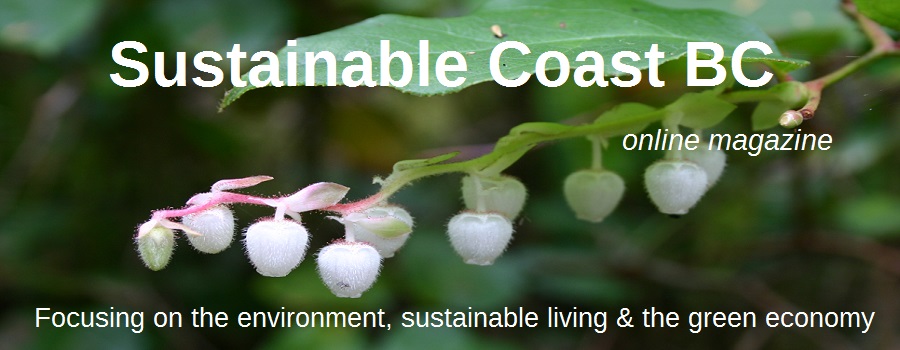Features
- Details
- Written by Beverly Saunders Beverly Saunders
- Category: Green Economy Green Economy
- Published: 08 August 2011 08 August 2011
At the outset, partners in the Skookum 'Chuck Wagon concession trailer in Egmont wanted to try for Zero Waste. We were serving food from a concession trailer to visitors to the Skookumchuck Trail and the Egmont Heritage Centre. There were a number of factors to consider including a requirement by the health authorities that we use one-time-use foodwares and a concern for the local environment.
With a bit of research, we found BSI, Biodegradable Solutions Inc., of Vancouver. This is a fairly new company of thirty-somethings that have sourced a wide variety of compostable foodware items. They were able to supply us with all the foodware items we needed.
Once the menu was set, we had to decide what was the minimum needed to serve the food properly but not be wasteful. We came up with using rattan picnic plate holders which we bought from the local thrift store. We used compostable paper sheets on these trays to serve many items. We also had a clam chowder to serve which required a bowl. BSI was able to supply a bamboo bowl that was compostable.
The forks and spoons needed and the cold cups are made from corn and plant materials. They are all compostable. The coffee cups and napkins are made from paper, some of which is recycled.
We looked to EcoSafe for compostable garbage bags. They are headquartered in Surrey, BC. They offer strong bags that are certified compostable.
The next hurdle was to work with our suppliers to get our food products in the least amount of packaging as possible. With certain food items and the health laws some things are just not negotiable. However, with our special orders for our smoked salmon and seafood skewers, we worked with the supplier asking him not to include styrofoam food trays and to package many of our items in bulk. He was more than happy to meet our request.
Finally, we had to work on educating our customers. We spend time explaining to them that, "Yes, the clear cups are compostable. They are made from corn." Some people have a hard time believing that everything, paper, utensils, cups can all go into the compost bin.
We originally put out three bins, compost, recycle and a garbage can. However after a couple of weeks we removed the garbage can. We realized that we were not generating much garbage and that what we were getting was waste from fast food outlets such as MacDonalds. People saw a garbage can and cleaned out their cars. Now we only have a compost bin and a recycle bin.
Another decision we made was not to sell bottled water. None of us felt good about that and if anyone has a container we will fill it for free. People really appreciate and like that.
Currently, we are composting our materials ourselves. Since this is a home composting system and not a commercial facility, it will take longer to compost. But we are looking forward to using that compost on gardens next spring.
The results so far are rewarding and we are getting positive feedback from our customers. They really like the idea and some of them are rethinking how they purchase their food and water.
